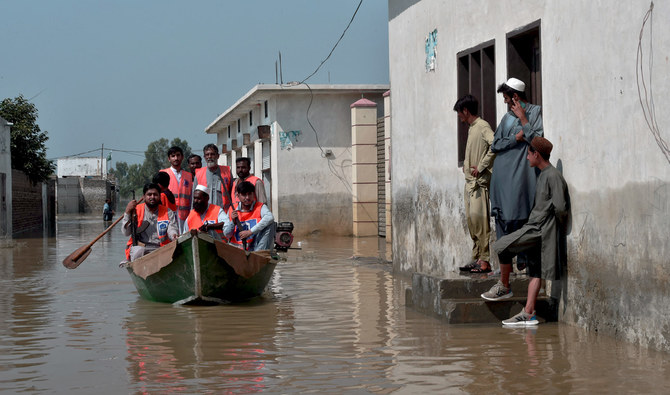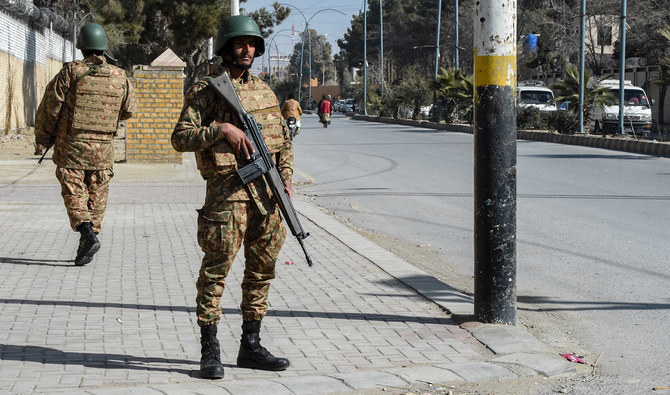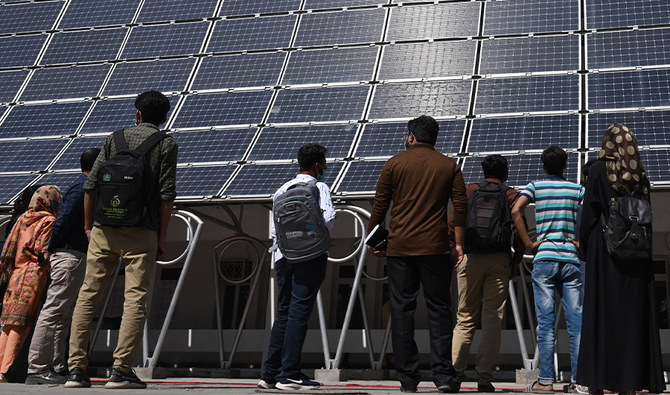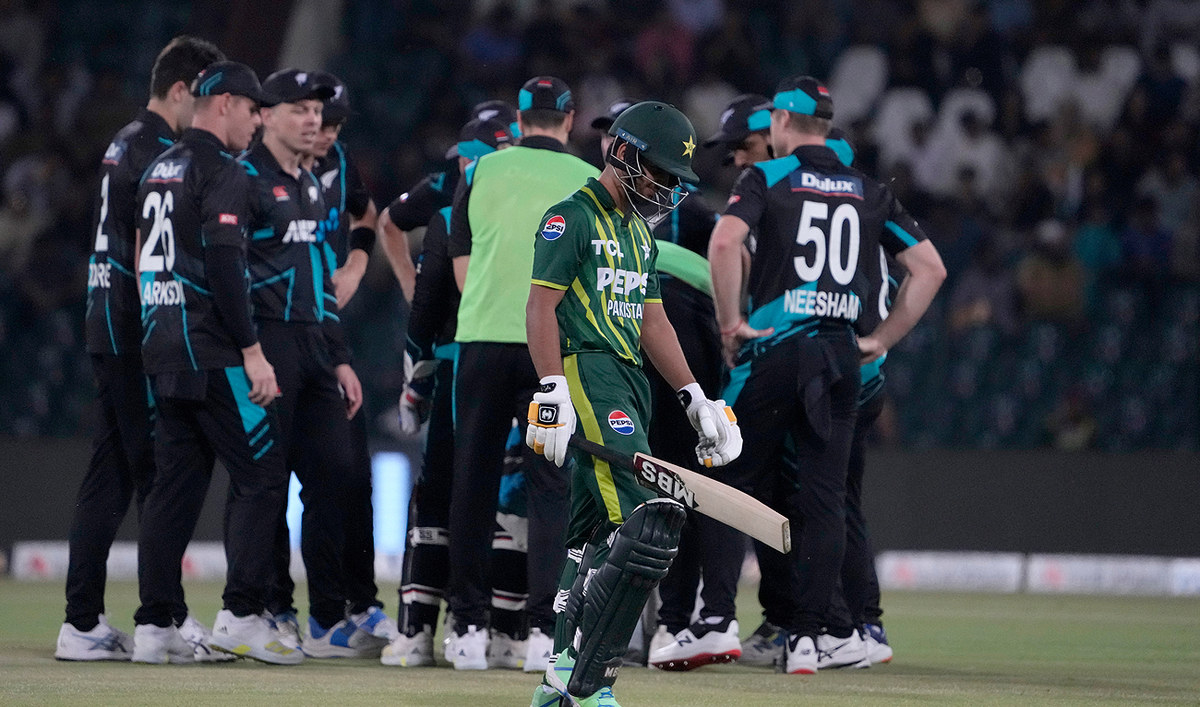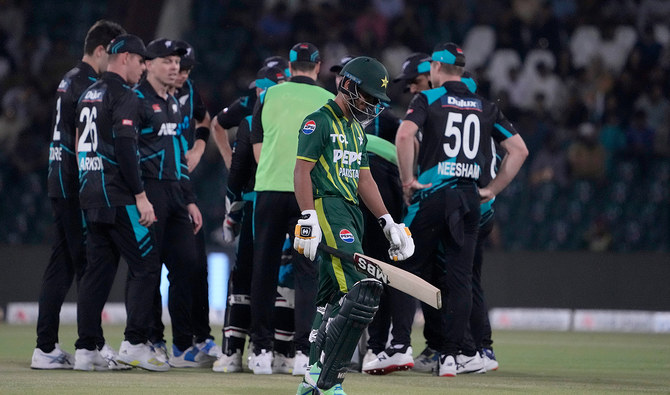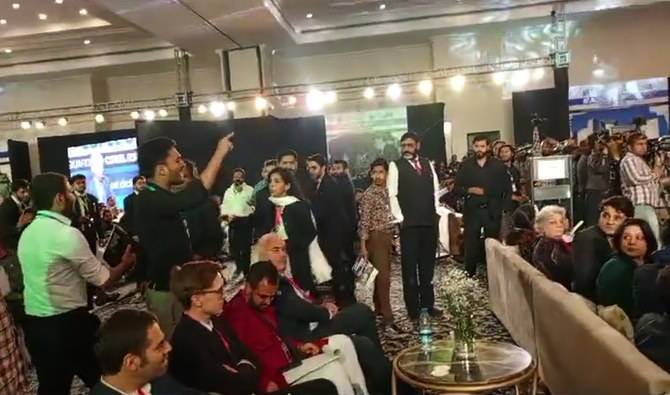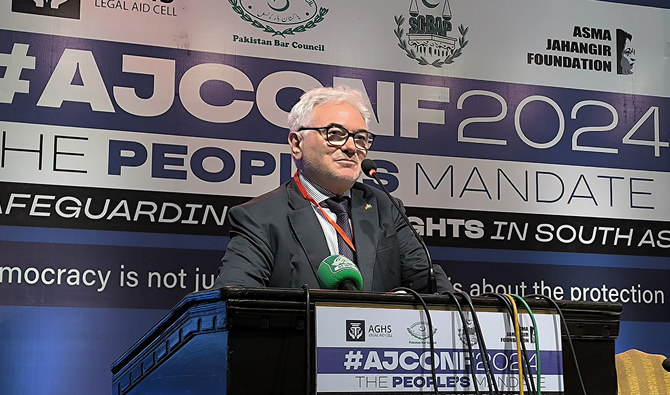NOWSHERA: Daily wage laborer Waris Khan was at work at a market near his home in northwest Pakistan on August 27 when he received a frantic call from his wife, telling him their house had been flooded.
By the time Khan reached home, the entire neighborhood of Sheikhabad in Nowshera city was submerged after flood water breached a narrow embankment surrounding the area.
More than 1,300 people have been killed and millions have lost their homes in flooding caused by unusually heavy monsoon rains in Pakistan this year that many experts have blamed on climate change. About a third of the country is currently under water, the government estimates, and floods have affected more than 33 million in a nation of 220 million and caused $10 billion in damages. The provinces of Punjab, Sindh, Balochistan and Khyber Pakhtunkhwa have been the most affected and the majority of people killed are women and children.
In Nowshera district, at least 53 villages were severely battered and 250,000 people rendered homeless, according to a government report on damages. The deluge also destroyed around 9,000 homes and crops on 13,000 acres.
Sheikhabad, a poor neighborhood of around 200 ramshackle homes in Nowshera city in the northwestern Khyber Pakhtunkhwa province, is one of the worst-hit, still submerged in waist-deep water almost 10 days after 12-feet-tall waves ripped through the area in late August.
Like hundreds of other families in Sheikhabad, Khan’s too has found temporary shelter — in a small shop — and is waiting desperately for the water to recede.
In the coming months, Pakistan’s government will need to focus on reviving the lives and livelihoods of laborers like Khan in the aftermath of one of the worst disasters in the country’s history.
“There’s my house,” Khan said, pointing to a cluster of homes about a 100 meters away, only their rooftops peeping out of the floodwater.
He choked up when asked what his urgent appeal was from the government.
“There is no work for us,” the worker said. “What should we do? Look at that water, there is still three to four feet of standing water.”
Khalil ur Rehman, another Nowshera resident, said after the embankment was breached, it took less than an hour for the entire area to be flooded.
“All we could do was save our lives,” he said.
Noor Badshah, a laborer and resident of Sheikhabad, pointed to a large sofa placed outside a damaged house, large cracks running through the walls. The rooms inside were littered with broken furniture.
“I fled my house with my children while the furniture and everything else got ruined,” the 32-year-old told Arab News.
“This house is not livable anymore ... I can’t bring my children back here,” Badshah added, as volunteers of a private charity handed out styrofoam containers of food in a flooded street in Sheikhabad. “Not a single thing inside these houses has remained safe from the flood.”
Taking a few food boxes for his family, the laborer added: “Only poor laborers live here. If their houses become unlivable, what will they do? Should we work for a living or build new homes?”
Quratulain Wazir, the additional deputy commissioner for Nowshera city, told Arab News 25,000 of 80,000 families affected by flash floods in the city had been “very peacefully shifted to relief camps.” Of the 77 relief camps set up in Nowshera, she said, only three were still holding flood affectees.
“Now we are left with only three relief camps as most of the people have moved back to their houses,” she said. “You can see, we are engaged with providing these people food and other items and medicines.”
But many aid workers in the area said it would be weeks, if not months, before homes would be in any condition for people to return.
Umar Khan Utmanzai, part of a 25-member team of student volunteers working with flood survivors in Nowshera and the nearby city of Charsadda, told Arab News it could take up to a month for all those displaced in Nowshera to go back home.
“We have seen a very terrible situation in Nowshera, with mud [in huge amounts] in people’s homes,” he said. “The water is still there in homes and streets of Nowshera. So, I don’t think they will be returning to their homes soon.”
The volunteer said another major concern were disease outbreaks, which posed grave risks to victims of Pakistan’s worst floods in decades. Diarrhea, skin diseases and eye infections are spreading at relief camps set up by the government across the country, officials have said.
“People are suffering from diarrhea, which, due to lack of proper sanitation in these flood-hit areas, is causing a lot of problems,” he said.
Wazir, the deputy commissioner, added:
“We are facing many [health] issues, there is an outbreak of dengue and malaria, so we need medical camps to be constituted in different areas … We need medicines, food and non-food items for all these people because they will start their lives from scratch. So, we need to push them up.”
But for now, many Nowshera residents said they were just grateful if charities or government officials delivered food twice a day.
“People provide us food once a day, or at times twice,” Khalil ur Rehman said. “But it is never certain whether it will come.”



